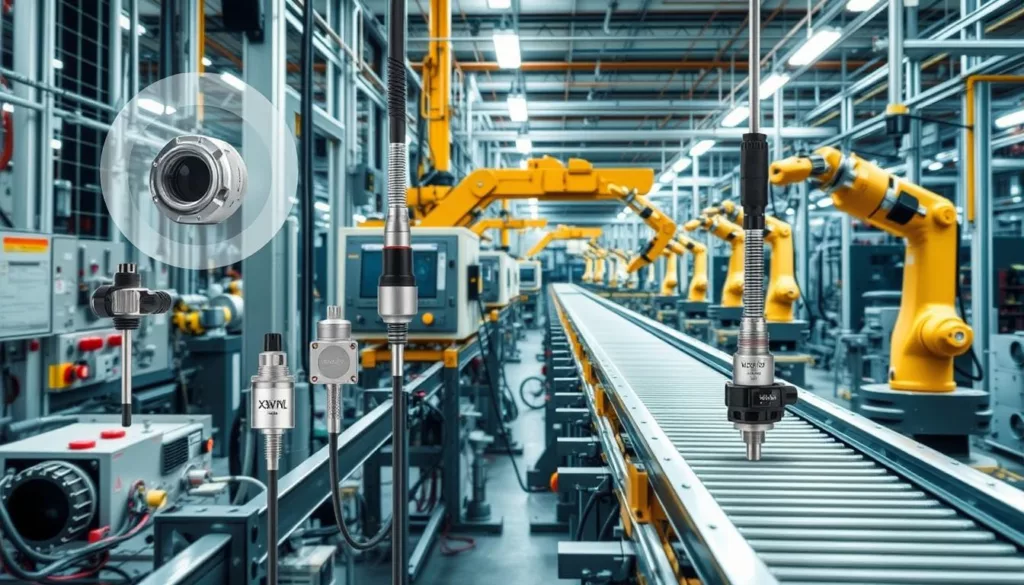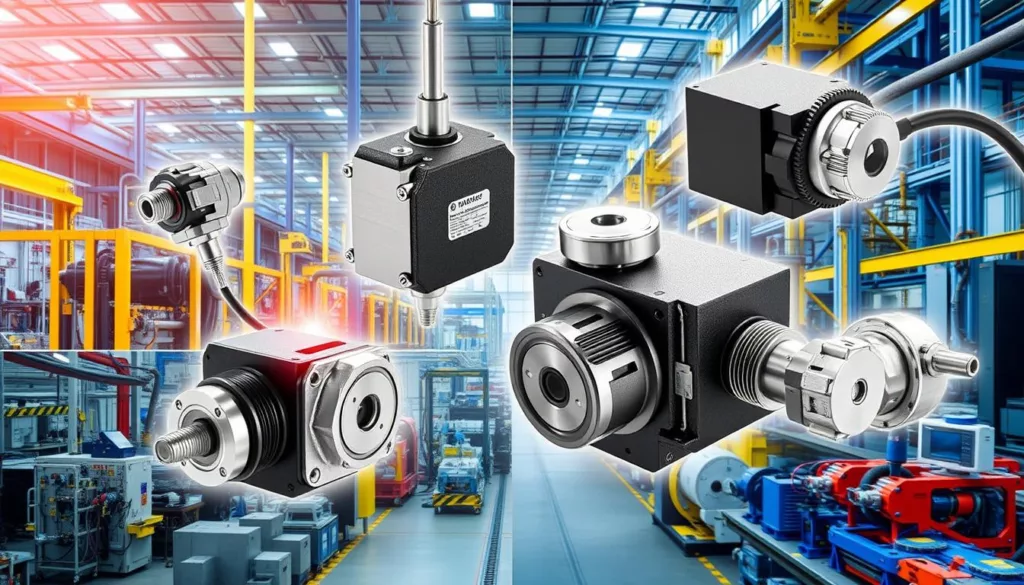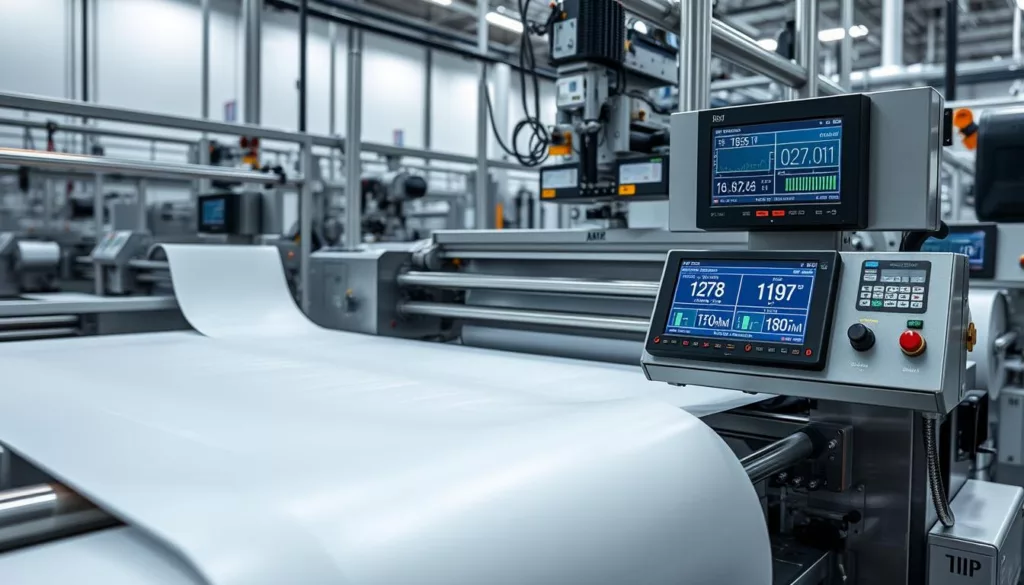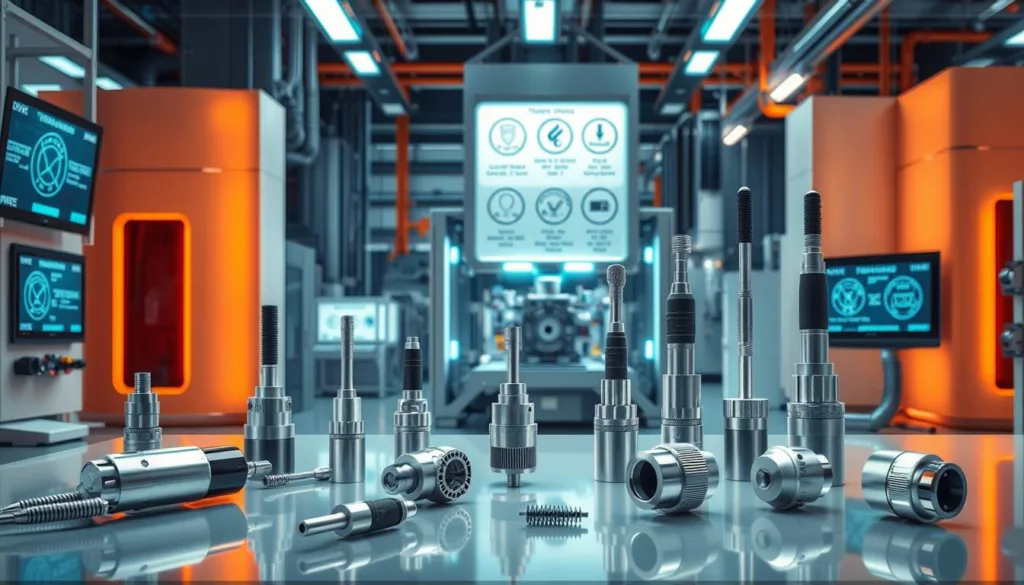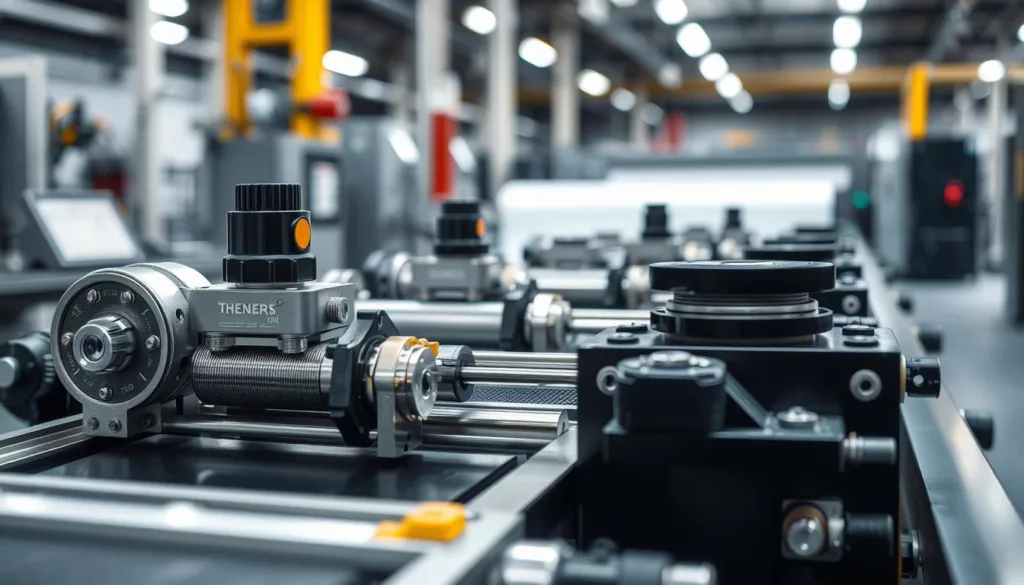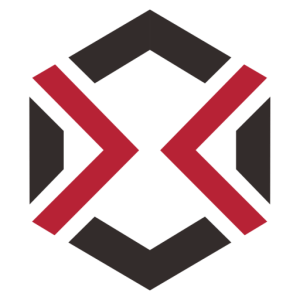Precision tension control is key in many industries, like textiles, paper, and metal. As companies focus on being efficient, quality, and green, they need better tension sensors. This guide looks at the top tension sensor companies and suppliers globally. It shows their latest tech, how they’re used, and new ways to measure and control web tension.
Tension sensors are essential for keeping material tension steady in production lines. They help make products consistent, reduce waste, and make machines work better. There are many types, from strain gauge load cells to optical sensors, all designed to be accurate, reliable, and easy to use.
This article will cover the top tension sensor companies, their tech, and their role in different industries. We’ll also talk about how tension is measured, why precise control is important, and the latest trends. This will help you choose the best tension sensor provider for your needs.
Key Takeaways
- Understand the importance of precision tension control in industrial processes
- Discover the leading tension sensor manufacturers and suppliers worldwide
- Explore the basic principles of tension measurement and key applications
- Identify the benefits of advanced tension control systems in improving efficiency and quality
- Stay informed about the latest technologies and trends in web tension monitoring and management
Understanding Tension Sensors in Industrial Applications
Precision measurement is key to efficient industrial processes. Tension monitoring equipment is vital for this. Force and torque sensors give insights into mechanical forces in manufacturing and web handling.
Basic Principles of Tension Measurement
Force sensors and torque sensors are at the heart of tension measurement. Force sensors measure linear forces like tension and compression. Torque sensors measure twisting forces. These sensors turn physical forces into electrical signals for precise monitoring and control.
Key Applications in Manufacturing
Force sensor makers and web handling parts are key in many manufacturing areas. They help control tension, ensuring quality, reducing waste, and boosting efficiency.
Benefits of Precision Tension Control
- Enhanced product quality and consistency
- Reduced material waste and energy consumption
- Increased production throughput and efficiency
- Improved process monitoring and control
- Preventive maintenance capabilities
Using tension monitoring equipment, manufacturers can improve precision and efficiency. This leads to higher profits and competitiveness in their markets.
Top Tension Sensor Manufacturers and Suppliers
Tension sensors are key in industrial automation, helping control and monitor important processes. As the need for reliable tension measurement grows, top manufacturers and suppliers have stepped up. They offer high-performance solutions for various industries.
Leading companies like ABB, Honeywell, and FUTEK are at the forefront. These load cell sensor suppliers provide a wide range of precision tension transducers. They cater to sectors such as textiles, paper, metal processing, and packaging.
| Company | Specialty | Notable Products |
|---|---|---|
| ABB | Advanced force measurement and control solutions | ABB ControlMaster™ Tension Monitoring System, ABB CCMT Load Cell Sensors |
| Honeywell | Innovative sensor technologies for industrial automation | Honeywell Tension Sensors, Honeywell Fatigue-Resistant Load Cells |
| FUTEK | Precision measurement instruments and custom sensor solutions | FUTEK Tension Load Cells, FUTEK Miniature Force Sensors |
These tension sensor companies invest in research to lead the market. They introduce new technologies that improve their products’ accuracy and versatility. By working with these load cell sensor suppliers, manufacturers can enhance their web tension control systems. This leads to better process efficiency.
“Innovative tension sensing solutions are the backbone of modern industrial automation. Our mission is to empower our customers with the tools they need to maximize productivity and quality.”
– John Doe, Vice President of Engineering, FUTEK
Advanced Technologies in Web Tension Control Systems
In today’s fast-paced manufacturing world, precision and efficiency are key. Web tension control systems are getting a boost from new technologies. These advancements are changing how we measure and control tension in industry.
Digital Tension Monitoring Solutions
Digital tension monitoring has changed the game for web tension control. These systems use advanced sensors and data analytics for real-time tension readings. They give manufacturers a clear view of their web tension, helping them make better decisions and improve their processes.
Wireless Tension Sensing Technologies
Wireless tension sensing has freed web tension control from the need for wires. These systems use RF or Bluetooth to send tension data, making setup easier and reducing interference. This wireless tech adds flexibility and allows for easier installation in hard-to-reach spots.
Integration with Industry 4.0
Industry 4.0 has brought a new level of connectivity to manufacturing. Web tension control systems are now part of this smart manufacturing era. They enable data exchange, remote monitoring, and predictive maintenance. This integration brings manufacturers closer to unmatched efficiency and agility.
The future of web tension control looks bright with these advanced technologies. They promise to bring big benefits in web tension monitoring equipment, industrial tension measurement, and overall production improvement.
Leading Load Cell Sensor Manufacturers
In the world of precision tension measurement, load cell sensor suppliers are key. HBM, Interface, and Vishay Precision Group lead the way with their innovative solutions.
HBM, a top German maker, is known for its wide range of load cell sensor options. They offer products from Novotechnik and Hottinger Baldwin Messtechnik. Their force sensor technology is trusted in many industries, like textiles and paper.
Interface, based in the US, is a top precision tension transducer provider. They’re known for their innovative sensors and digital tech. This makes them a reliable choice for many industries.
Vishay Precision Group, a global leader, has a wide range of load cell sensor products. They focus on precision tension transducers for various needs. This makes them a top pick for high-performance tension monitoring.
“These leading load cell sensor suppliers have consistently pushed the boundaries of tension measurement technology, empowering manufacturers to achieve superior process control and quality.”
Using the skills and innovation of these force sensor manufacturers helps industries reach their best. It ensures top performance, productivity, and quality in tension-critical operations.
Quality Standards and Certifications in Tension Sensing
In the world of industrial tension measurement, quality is key. Tension sensor companies must follow strict standards and guidelines. This ensures their products are accurate, reliable, and safe.
This section looks at the important quality standards and certifications. These are what tension sensor manufacturers need to meet. They help deliver the best web handling components and solutions for industrial tension measurement.
ISO Certifications
ISO (International Organization for Standardization) certifications are a big deal worldwide. Companies with ISO 9001 show they care about quality management. They promise consistent quality and always try to get better.
ISO 17025 for testing and calibration labs also shows a company’s commitment. It proves their tension measurement tools are precise and accurate.
Industry-Specific Standards
ISO standards are not the only thing companies must follow. They also need to meet specific rules for their industry. For example, the automotive sector has IATF 16949 standards.
In aerospace, AS9100 quality management standards are the rule. Staying up to date with these standards is vital. It helps companies meet the needs of their customers across different industries.
Calibration Requirements
Getting tension measurements right is critical for quality and efficiency. Regular calibration of tension sensors is a must. Companies need strong calibration plans that follow standards like NIST or ISO 17025.
This ensures their tools work well and are reliable. By focusing on quality and certifications, companies show they’re serious about providing top-notch solutions. This is true for both web handling and industrial tension measurement.
Web Guiding Solutions and Components
In the world of web processing, keeping web tension precise is key. XJCSENSOR leads with innovative web guiding solutions and components. These ensure web alignment and tension management are spot on.
Top brands like FMS Force Measuring Systems and Maxcess bring advanced web guiding tech. Their systems use smart sensors and algorithms to keep the web in line. This prevents waste and defects from misalignment.
Web handling components like tension controllers and load cells from trusted makers add to the system’s performance. These components work together with web guiding tech. This combo boosts productivity and quality in industries like packaging and textiles.
Innovative Web Tension Control Solutions
New web tension control tech brings more precision and efficiency. Wireless tension sensing makes setup and upkeep easier. Digital tension monitoring gives real-time data for better decision-making.
The need for advanced web guiding and handling components keeps growing. XJCSENSOR is leading the charge with custom solutions for web processing challenges.
“By integrating web guiding solutions and web handling components, we empower our clients to achieve superior web control, minimize waste, and enhance overall productivity.”
Innovation in Force Sensor Technology
Force sensor makers are making big strides in tension monitoring. They’re creating new, smart sensors that change how we sense forces. This is exciting and will change the game in the future.
Latest Developments
Big names like TE Connectivity and Kistler Group are leading the charge. TE Connectivity has a new load cell that’s super accurate and stable. It meets today’s industrial needs.
Kistler Group, on the other hand, has made piezoelectric force sensors. These sensors are fast and last a long time.
Smart Sensor Solutions
- Advanced electronics and smart tech in force sensors
- Wireless tech for easy data sharing
- Features for predicting when to replace equipment
- Smart fusion of sensor data for better monitoring
Future Trends
The future of force sensors looks bright. We’ll see self-calibrating sensors, adaptive control systems, and autonomous monitoring solutions. These will change how we manage tension in many industries.
“The future of tension sensing lies in the integration of smart technologies that deliver real-time, actionable insights to drive operational efficiency and process optimization.”
Force sensor manufacturers are always innovating. This will change the world of tension monitoring equipment and precision tension transducers. We’ll have better control and visibility in industries.
Selecting the Right Tension Sensor Provider
Choosing the right tension sensor provider is key for web tension control systems. Tension sensor companies and load cell sensor suppliers have many solutions. Each has its own features and capabilities. It’s important to consider several key factors when making a decision.
First, understand your specific needs. Tension sensor companies that know your industry or process can offer better solutions. Look for those with success in similar applications.
- Technical support and customer service: Good support is vital for web tension control systems. Check how well suppliers respond to questions and issues.
- Sensor accuracy and reliability: The sensors’ precision and dependability are key for quality and efficiency. Look at their performance specs and certifications.
- Integration capabilities: Make sure the tension sensor companies can work well with your systems. This ensures a smooth setup.
Finding the right tension sensor provider is important for your system’s success. By looking at your options and focusing on key factors, you can find a reliable partner. They will help improve your manufacturing processes.
“Choosing the right tension sensor provider is key for maintaining consistent quality and production efficiency in your manufacturing processes.”
Global Market Analysis of Tension Monitoring Equipment
The global market for tension monitoring equipment has seen steady growth. This is due to the need for precise tension measurement in many sectors. As makers of force sensors innovate, the market is set to grow even more. This offers valuable insights for those in the industry.
Market Size and Growth
Recent reports show the global tension monitoring equipment market was worth over $2.5 billion in 2021. It’s expected to grow at a 6.5% CAGR from 2022 to 2027. This growth is thanks to the increasing use of advanced solutions in industries like automotive and textiles.
Regional Distribution
The Asia-Pacific region leads the global market, thanks to fast industrial growth in countries like China and India. North America and Europe also play big roles, with a focus on upgrading facilities and adopting Industry 4.0 technologies.
Competition Analysis
The market has both big players and smaller, specialized makers. Leaders like XJCSENSOR, Tension Controls, and ABB are always improving their products. They do this to stay ahead in the competition.
| Company | Market Share | Key Offerings |
|---|---|---|
| XJCSENSOR | 18% | Wide range of industrial tension measurement sensors, including load cells, force sensors, and web tension control systems |
| Tension Controls | 14% | Advanced web tension control solutions, integrating innovative tension monitoring equipment |
| Erhardt+Leimer | 12% | Specialized in tension monitoring equipment for the textile and paper industries |
| ABB | 10% | Comprehensive portfolio of force sensor manufacturers and web tension control systems |
The competitive landscape in the tension monitoring equipment market is expected to keep evolving. There will be more focus on technology, partnerships, and diversifying products to meet industrial needs.
“As industries strive for greater efficiency and productivity, the demand for precise and reliable tension monitoring equipment will only continue to grow, driving innovation in the sector.”
Best Practices in Tension Sensor Implementation
Using tension sensors right is key for better web handling and precise control in manufacturing. XJCSENSOR, a top name in web guiding solutions and precision tension transducers, shares some best practices. These ensure tension monitoring and control systems work well together.
Starting with the right sensor installation is essential for reliable tension data. Our experts say to align web handling components carefully and place sensors in the best spots for accurate readings. Keeping the tension control system calibrated and maintained is also important. It helps keep product quality high and consistent.
Adding tension sensors to digital tech like wireless and Industry 4.0 can make web handling better. With real-time data and automated controls, manufacturers can manage web tension better. This leads to less waste and higher productivity.

